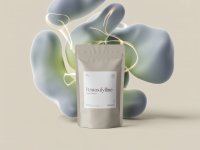
BPC-157
Description
BPC-157, a synthetic peptide derived from a naturally occurring protein in human gastric juice, is gaining attention for its potential regenerative properties. It is believed to accelerate healing, reduce inflammation, and promote overall tissue repair. This article provides a comprehensive yet accessible overview of BPC-157, designed to inform both supplement buyers and those seeking a quick understanding of its benefits and considerations.
Quick Overview: BPC-157 At-a-Glance
- Key Benefit(s): Accelerated wound healing, tissue repair, and reduced inflammation.
- Primary Mechanism: Promotes angiogenesis (blood vessel formation), boosts collagen production, and activates growth factors.
- Best For: Supporting recovery from injuries, promoting joint health, and aiding digestive issues.
- Typical Dose Range: 200-500 mcg daily, administered via subcutaneous or intramuscular injection.
- Key Caution/Consideration: Not FDA-approved; potential interactions with immunosuppressants; consult a healthcare professional before use.
Table of Contents
Categories & Effectiveness
Learn about our rating methodologyBrain Health
Neuro-Repair Support
8/10Strong evidence of effectiveness
Dopamine Support
6/10Moderate evidence of effectiveness
Excitotoxicity Defense
5/10Moderate evidence of effectiveness
Cognition
Memory & Recall
6/10Moderate evidence of effectiveness
Dosage & Side Effects
Recommended Dosage
Key Dosage Tips:
- Start with the lower end of the dosage range (200 mcg) to assess your body's response.
- Ensure proper injection technique to minimize discomfort or potential complications.
- Consult with a healthcare professional to determine the optimal dosage for your specific needs.
Potential Side Effects
Watch For:
- Persistent or severe headaches
- Significant swelling at the injection site
- Signs of an allergic reaction (rash, itching, difficulty breathing)
Bioavailability & Half-Life
Interactions & Stacks
Recommended Products
Nature spring® TMG Betain Kapseln | Vegane Premium TMG-Kapseln | 500mg wasserfreies Betain (Trimethylglycin) pro Kapsel | hochrein | Betain anhydrous (60 Stück (1er Pack))
- Rated 5.0 stars by 19 customers
- Premium quality ingredients
natural aid Daily Vegan Zink Multivitamin Kapseln [100% vegan] 120 Stück Vitamine laborgeprüft o. Zusätze in DE hergestellt Immunsystem stärken Mineralstoffe Komplex Jod Selen Zink
- Rated 4.6 stars by 609 customers
- Special offer: Spare 5 % mit Rabattgutschein
Endotelio 1-MNA, Optimierendes NAD+, Anti Aging, Biohacking-Ergänzungsmittel, Unterstützung für die Zellgesundheit, 30 Kapseln
- Rated 4.2 stars by 75 customers
- Premium quality ingredients
As an Amazon Associate we earn from qualifying purchases. Prices and availability are accurate as of the date/time indicated and are subject to change.
Benefits by Use Case
Accelerated Wound Healing
BPC-157 promotes faster closure of skin wounds and enhances collagen production. It also stimulates angiogenesis, improving blood flow to the injured area for quicker healing.
Reduced Joint Pain & Inflammation
BPC-157 exhibits anti-inflammatory properties, which can alleviate joint pain and improve mobility. It may also aid in the repair of damaged cartilage, contributing to long-term joint health.
Improved Gut Health
BPC-157 can promote the healing of gastric ulcers and reduce inflammation in the digestive tract. It may also help restore the integrity of the gut lining, improving nutrient absorption and overall digestive function.
Neuroprotective Effects
BPC-157 has demonstrated neuroprotective properties in animal studies, potentially protecting brain cells from damage. It may also enhance cognitive function and improve recovery from neurological injuries.
Tendon and Ligament Healing
BPC-157 has shown promise in accelerating the healing of damaged tendons and ligaments. It may enhance collagen synthesis and reduce inflammation, promoting faster recovery from injuries.
Mechanism of Action
Frequently Asked Questions
Where to Buy BPC-157
Based on quality, price, and customer reviews, here are our top recommended BPC-157 supplements:
natural aid Daily Vegan Zink Multivitamin Kapseln [100% vegan] 120 Stück Vitamine laborgeprüft o. Zusätze in DE hergestellt Immunsystem stärken Mineralstoffe Komplex Jod Selen Zink
- Rated 4.6 stars by 609 customers
- Special offer: Spare 5 % mit Rabattgutschein
SYNTHAGEN LABORATORIES - NL-BPC-157 - HEXADEKAPEPTID - Für Muskeln und Regeneration nach dem Training - Peptide für das Fitnessstudio BPC - Zur Behandlung von Verletzungen
- Rated 4.0 stars by 119 customers
- Premium quality ingredients
Endotelio 1-MNA, Optimierendes NAD+, Anti Aging, Biohacking-Ergänzungsmittel, Unterstützung für die Zellgesundheit, 30 Kapseln
- Rated 4.2 stars by 75 customers
- Premium quality ingredients
As an Amazon Associate we earn from qualifying purchases. Prices and availability are accurate as of the date/time indicated and are subject to change.
Summary & Expert Opinion
Key Strengths: Potential for accelerated healing, anti-inflammatory effects, and neuroprotection. Key Weaknesses: Limited human studies, not FDA-approved, potential side effects, and interactions with immunosuppressants. Recommendation: Consider BPC-157 as a potential adjunct therapy for specific conditions under the guidance of a healthcare professional, with careful monitoring for side effects.
Detailed Technical Analysis:
BPC-157's diverse effects are likely mediated through several intricate mechanisms. Angiogenesis, a primary action, involves the stimulation of endothelial cell migration and proliferation via growth factors like vascular endothelial growth factor (VEGF). This process is crucial for delivering nutrients and oxygen to damaged tissues, accelerating repair. Furthermore, BPC-157 enhances collagen synthesis, a critical component of connective tissue, by activating fibroblasts and increasing the expression of genes involved in collagen production.
The anti-inflammatory effects of BPC-157 are thought to stem from its ability to modulate the release of pro-inflammatory cytokines, such as TNF-alpha and IL-6, and promote the production of anti-inflammatory cytokines like IL-10. This delicate balance can help resolve chronic inflammation and promote tissue homeostasis.
In the central nervous system, BPC-157 appears to exert neuroprotective effects by reducing oxidative stress and excitotoxicity. It may also interact with neurotransmitter systems, such as the dopaminergic and adrenergic systems, influencing mood, cognition, and behavior. Animal studies suggest that BPC-157 can counteract stroke-induced brain damage and improve recovery from spinal cord injuries.
However, it's crucial to acknowledge the limitations of current research. The majority of studies are preclinical, involving animal models, and the results may not always translate directly to humans. Human clinical trials are needed to confirm the efficacy and safety of BPC-157 for various conditions.
Furthermore, the optimal dosage, administration route, and long-term effects of BPC-157 remain unclear. The potential for interactions with other drugs and supplements also warrants careful consideration. Therefore, individuals considering BPC-157 should consult with a healthcare professional to weigh the potential benefits and risks based on their specific circumstances.


![natural aid Daily Vegan Zink Multivitamin Kapseln [100% vegan] 120 Stück Vitamine laborgeprüft o. Zusätze in DE hergestellt Immunsystem stärken Mineralstoffe Komplex Jod Selen Zink](https://m.media-amazon.com/images/I/81E2ERcyVbL._AC_UL320_.jpg)





